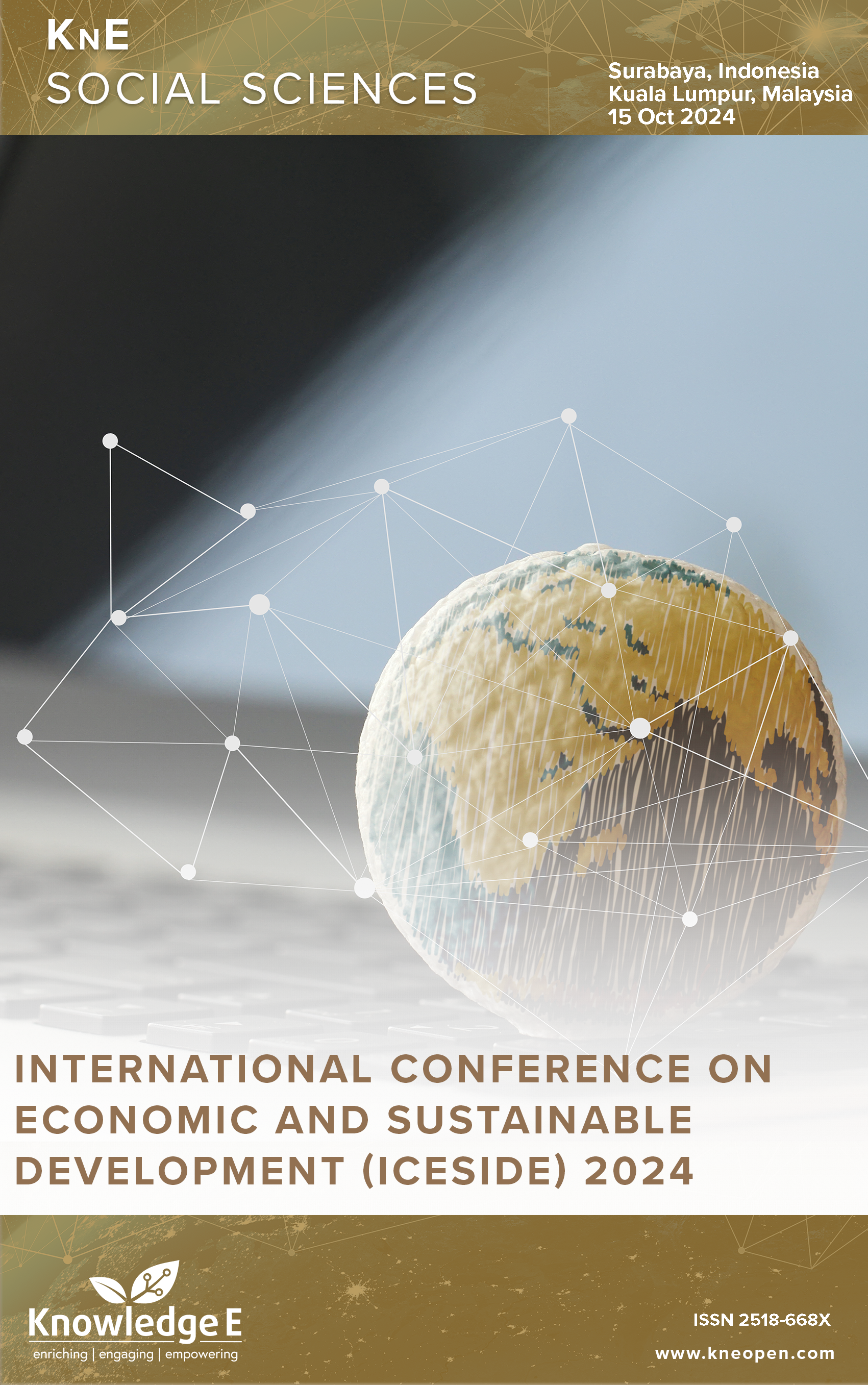Economic Growth and Financial Inclusion in Developing Countries
DOI:
https://doi.org/10.18502/kss.v10i5.18102Keywords:
economic growth, financial inclusion, panel corrected standard errorAbstract
The banking sector has an important role in the country’s economy because banking can influence the economic conditions of a country. This research aims to analyze the influence of banking stability on economic growth in developing countries. This research uses secondary data from cross-section data from 35 developing countries with a research period from 2011-2022. The data analysis technique used is based on panel corrected standard error (PCSE). Results of stability research on the influence of economic growth in developing countries. Banking stability can increase economic growth because stable banks are able to support economic activities through providing credit, managing risk, and increasing public trust.
References
Jhingan ML. The Economics of Development and Planning. 40th ed. Delhi: Vrinda; 2011.
Emara N, El Said A. Financial inclusion and economic growth: the role of governance in selected MENA countries. Int Rev Econ Finance. 2021;75(February):34–54. DOI: https://doi.org/10.1016/j.iref.2021.03.014
Ferdi M, Amri M, Zaenal M. Literasi dan inklusi keuangan dalam perekonomian Indonesia: Suatu aplikasi panel data. J Ekon dan Din Sos. 2022;1(2):51–70.
Puatwoe JT, Piabuo SM. Financial sector development and economic growth: evidence from Cameroon. Financ Innov. 2017;3(25):1–18. DOI: https://doi.org/10.1186/s40854-017-0073-x
Hasan A, Dowla AU, Tarannum R. Financial Inclusion and Economic Growth in Developing Nations: A Case Study of Bangladesh. Munich Pers RePEc Arch. 2024;1(57):37–53.
Afonso A, Blanco-Arana MC. Does financial inclusion enhance per capita income in the least developed countries? Int Econ. 2024;177( January). DOI: https://doi.org/10.1016/j.inteco.2024.100479
Sarma M. Index of financial Inclusion-A measure of financial sector inclusiveness. Work Pap. 2012;(7):1–37.
Sarma M. Index of Financial Inclusion. Indian Counc Res Int Econ Relations [Internet]. 2008;(215):1–26. Available from: https://icrier.org/pdf/Working_Paper_215.pdf
Khan N, Hassan MS, Yusof MF, Islam MA, Rahim MM. Financial inclusion as a catalyst for economic growth: evidence from selected developing countries [Internet]. Cogent Soc Sci. 2024;10(1):1–12. DOI: https://doi.org/10.1080/23311886.2024.2387907
Boachie C, Adu-Darko E. The effect of financial inclusion on economic growth: the role of human capital development [Internet]. Cogent Soc Sci. 2024;10(1):1–19. DOI: https://doi.org/10.1080/23311886.2024.2346118
Siddiki J, Bala-Keffi LR. Revisiting the relation between financial inclusion and economic growth: A global analysis using panel threshold regression [Internet]. Econ Model. 2024;135( June):1–12. DOI: https://doi.org/10.1016/j.econmod.2024.106707
Levine R, Loayza N, Beck T. Financial intermediation and growth: causality and causes. J Monet Econ. 2000;46(1):31–77. DOI: https://doi.org/10.1016/S0304-3932(00)00017-9
Sarma M, Pais J. Financial Inclusion and Development. J Int Dev. 2011;23(5):613–28. DOI: https://doi.org/10.1002/jid.1698
Nizam R, Karim ZA, Rahman AA, Sarmidi T. Financial inclusiveness and economic growth: new evidence using a threshold regression analysis. Ekon Istraz. 2020;33(1):1465–84. DOI: https://doi.org/10.1080/1331677X.2020.1748508
Erlando A, Riyanto FD, Masakazu S. Financial inclusion, economic growth, and poverty alleviation: evidence from eastern Indonesia [Internet]. Heliyon. 2020 Oct;6(10):e05235. DOI: https://doi.org/10.1016/j.heliyon.2020.e05235

